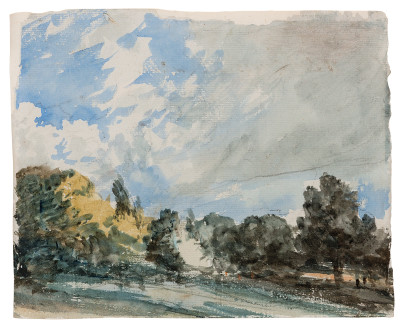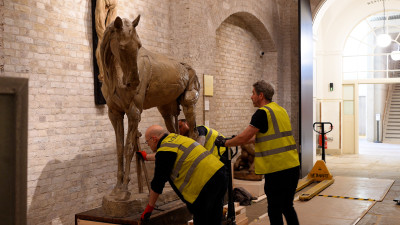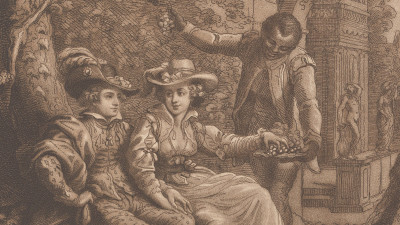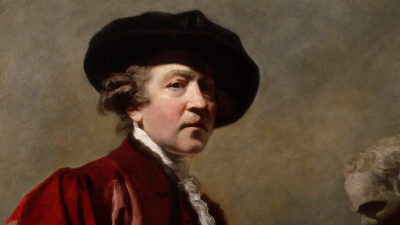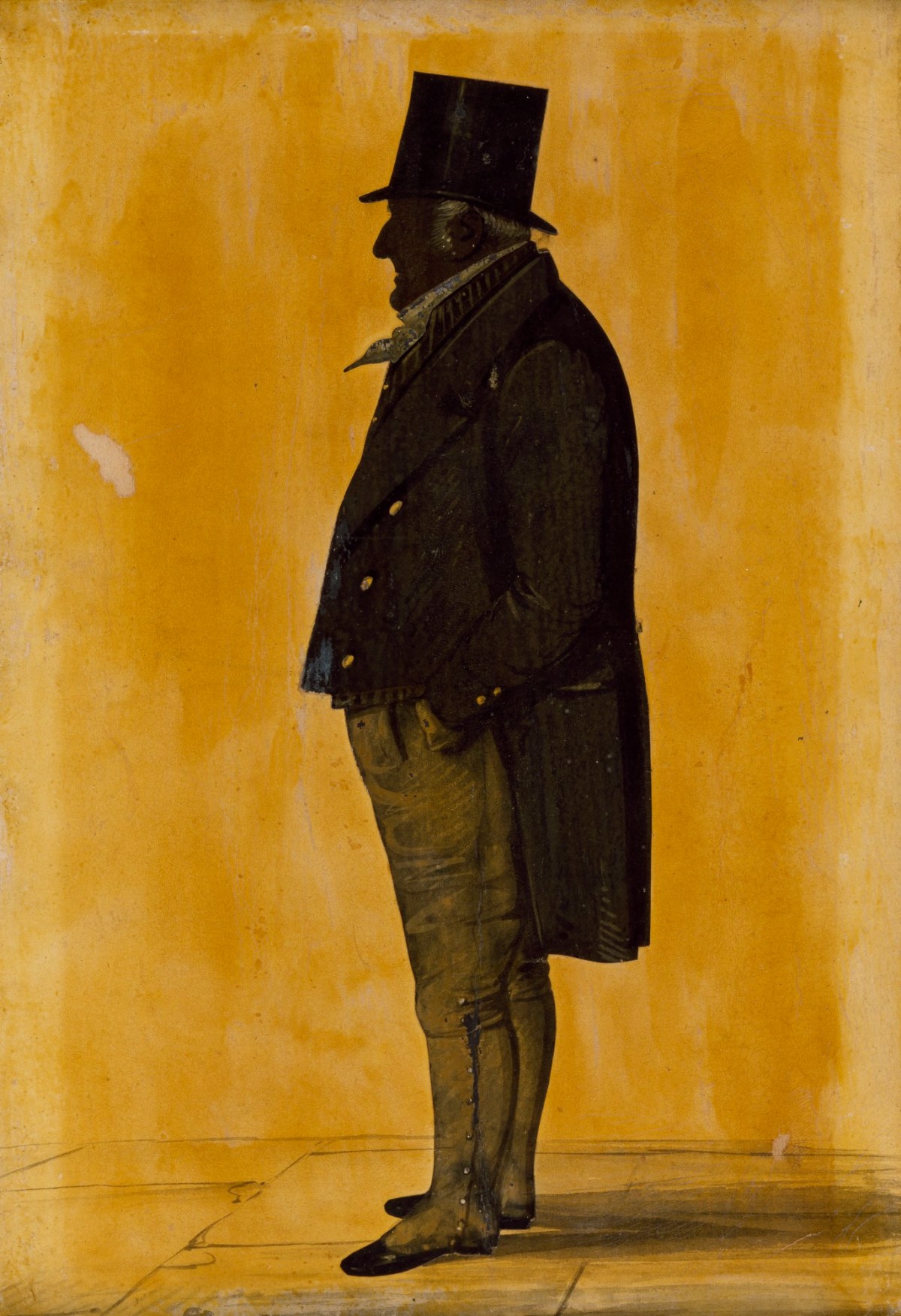
John Ruskin, Silhouette, said to be of J. M. W. Turner, c. 1840s.
Cut paper and watercolour. 262 mm x 184 mm. © Photo: Royal Academy of Arts, London.
This image is not available to download. To licence this image for commercial purposes, contact our Picture Library at picturelibrary@royalacademy.org.uk
Silhouette, said to be of J. M. W. Turner, c. 1840s
Attributed to John Ruskin (1819 - 1900)
RA Collection: Art
A label on the back of this silhouette states that the portrait is of J. M. W. Turner dressed 'for his visit to the Academy'. This inscription, signed "John Ruskin", does not indicate if the famous art critic cut the silhouette himself, embellished it or simply owned it. Furthermore, the Turner scholar Andrew Wilton has suggested that this inscription is not, in fact, in Ruskin's handwriting and has questioned whether the silhouette depicts Turner himself or simply another gentleman of the period who bore a passing resemblance to the painter.
A previous owner of the silhouette, collector and writer John Woodiwiss, was, however, convinced on both counts. He wrote in British Silhouettes (1965):
'During my collecting I have, on several occasions, come across portraits by cutters or painters who, although famous in other directions, were certainly not professional profilists. The most remarkable of these was an excellent likeness with a hand-written label: "J.M.W. Turner, R.A., as he was dressed for his visit to the Royal Academy, John Ruskin". The full-length silhouette had been cut from white paper and most effectively decorated in water-colours. It was clearly a lifelike study of the famous landscape-painter and was made more interesting on account of the important part played by Ruskin in focusing public attention on Turner's work at a time when it was not generally known or appreciated.
Ruskin's cutting was of such perfection that he might well have earned his living in this less spectacular field if he had not become a world-famous critic, painter and a man of letters. I had the great pleasure of giving this unusual souvenir to Richard Eurich, R.A., a fervent admirer of Turner's genius.'
The stellar status of J. M. W. Turner in British art owes much to the efforts of John Ruskin. At a time when Turner’s landscapes were mocked by the press, Ruskin developed a strong attachment to these works. Meeting Turner in 1840, he wrote: ‘Everybody had described him to me as coarse, boorish … and vulgar. This I knew to be impossible. I found in him a somewhat eccentric, keen-mannered ... gentleman’. For Ruskin, Turner was ‘the epitome of all art, the concentration of all power’ and he subsequently made his name as a critic by defending the artist in Modern Painters (1843).
Object details
262 mm x 184 mm
Start exploring the RA Collection
- Explore art works, paint-smeared palettes, scribbled letters and more...
- Artists and architects have run the RA for 250 years.
Our Collection is a record of them.
